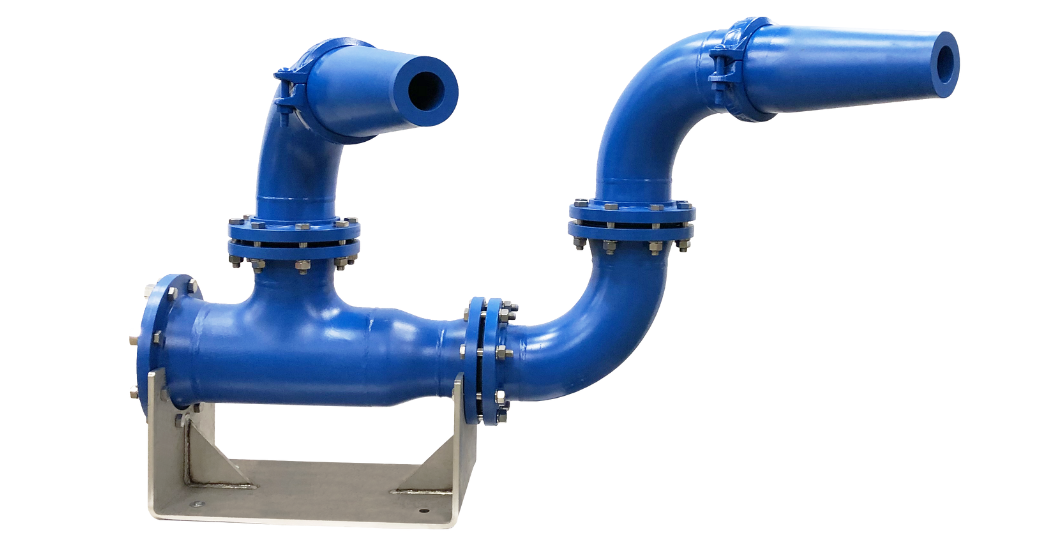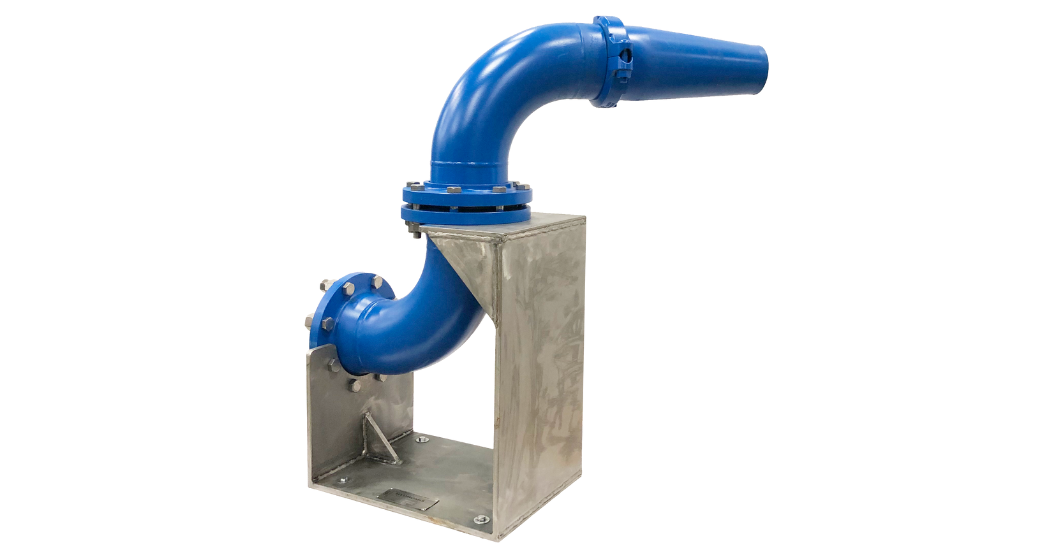In industries where mixing efficiency and process uniformity are paramount for optimum results, hydraulic mixing systems have emerged as an excellent choice. These systems use a centrifugal pump and a set of nozzles to mix chemicals, wastewater, crude oil, and other slurries and fluids. By recirculating the tank contents through strategically positioned nozzles, hydraulic mixing systems create high-velocity jets that blend the tank contents, suspend solids and promote uniform contents.
The circular fluid motion generated by the mixing system sweeps the tank floor, preventing solids buildup and maintaining tank bottom cleanliness while promoting overall tank uniformity. Using this motion and the tank walls, solids are suspended in the upper portions of the tank to ensure content uniformity. In addition, these mixing patterns minimize temperature and pH gradients within the tank.
A key advantage of hydraulic mixing systems is the absence of rotating parts within the tank, significantly reducing maintenance requirements. The main components include a centrifugal pump located outside the tank and an array of nozzles distributed throughout the tank, piped to the pump’s discharge. The nozzles are made of durable materials such as 304SS, are glass-lined for abrasion protection and have a 10-year life guarantee. Other construction materials can also be used for corrosion resistance, with various hardening techniques available to meet specific needs.
 The appropriate pump type is selected based on application requirements. Solid handling pumps (chopper, recessed impeller, or screw centrifugal pumps) are preferred for wastewater and slurries, while ANSI or API pumps are typically used for chemical processing and other cleaner fluids.
The appropriate pump type is selected based on application requirements. Solid handling pumps (chopper, recessed impeller, or screw centrifugal pumps) are preferred for wastewater and slurries, while ANSI or API pumps are typically used for chemical processing and other cleaner fluids.
Hydraulic mixing systems have found success in numerous applications, including anaerobic digesters, raw water storage, equalization basins, lime slurry, sludge storage, manure digestion (RNG), crude oil and de-icing fluid mixing. However, it is advisable to avoid using hydraulic systems to mix even moderately viscous fluids. Fluids should be tested for viscosity to ensure compatibility with the pump and nozzle system.





Comments